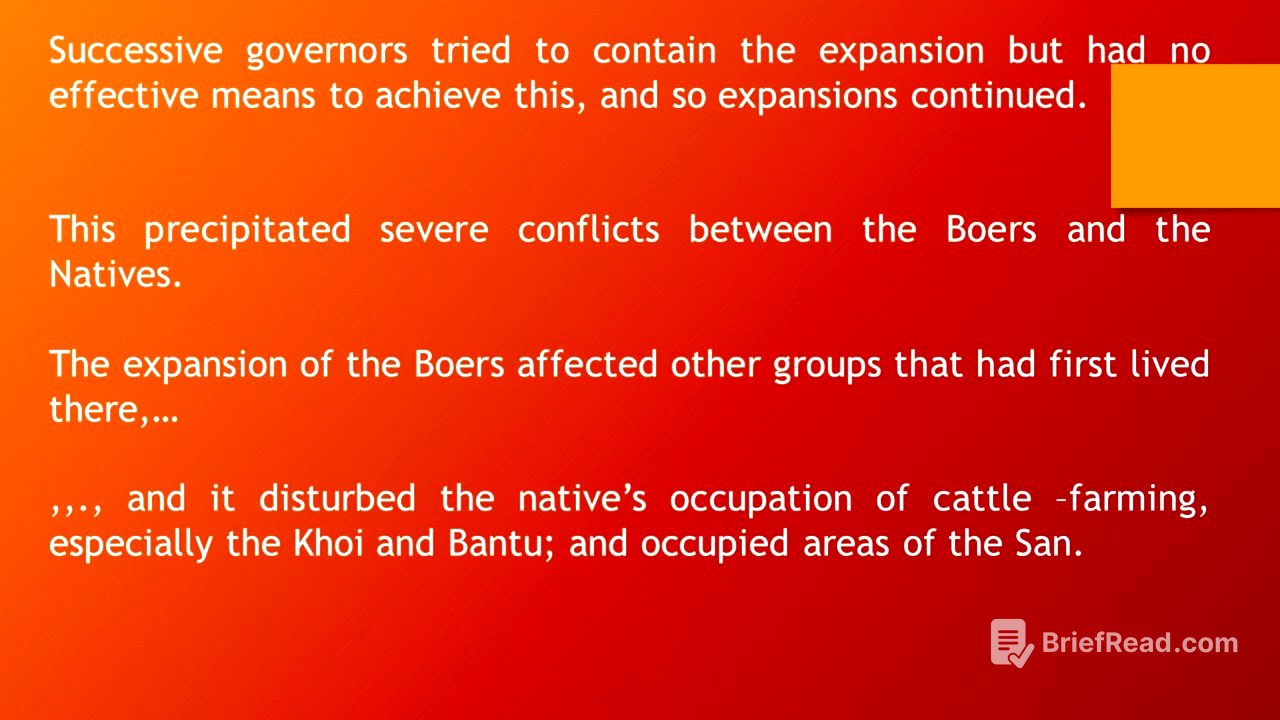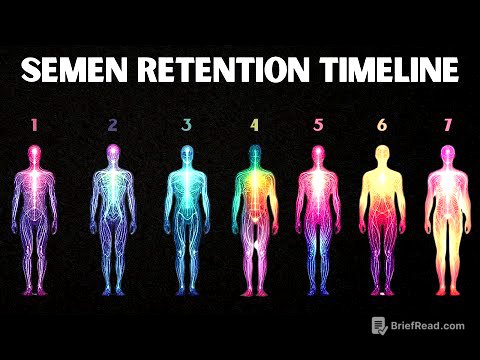TLDR;
This video discusses the expansion and settlement of the Dutch in Southern Africa, focusing on the period after Jan van Riebeeck. It highlights the role of Simon van der Stel in strengthening the settlement by encouraging immigration, including French Protestants fleeing religious persecution. The video also covers the establishment of a Dutch government and administration, the impact of European expansion on indigenous populations, and the resulting conflicts over land and resources.
- Dutch expansion in Southern Africa after Jan van Riebeeck.
- Immigration of French Protestants and other Europeans.
- Establishment of Dutch government and administration.
- Dispossession and conflict with indigenous populations (Khoikhoi, San, and Bantu).
- The misconception of Southern Africa as a "no man's land."
Expansion and Settlement of the Dutch [0:00]
After Jan van Riebeeck's exit, European settlement in Southern Africa expanded, particularly with Simon van der Stel's arrival in 1679. Van der Stel aimed to strengthen the Dutch base by promoting immigration and transforming the settlement. This occurred as Europe was recovering from religious wars, with Protestants facing persecution in countries like France.
Immigration and its Impact [1:06]
Starting in 1688, the Dutch offered French Protestants (Huguenots) refuge in the Cape, providing new homes and religious freedom. This initiative attracted over 200 French migrants within five years, significantly impacting the colony's development. These immigrants integrated into the social and economic system, often dispossessing indigenous people of their livelihoods by taking over farming and cattle grazing.
Establishment of Dutch Administration [2:58]
The Dutch established a formal government and administration in the Cape, under the command of a governor-general and council in India. This structure regulated the colony's affairs, with major decisions and policies controlled from afar. A high court and an army were also established to defend the territory. By the second half of the 17th century, the settlement had evolved into a colony with its own government, solidifying Dutch presence and authority.
Boer Expansion and Land Conflicts [5:03]
The expansion of the Boers (Dutch farmers) was closely linked to their need for grazing land and crop farming, which directly affected the livelihoods of the indigenous people. This led to confrontations and anarchy as farmers competed for land. The Boers began moving beyond the established frontiers in search of grazing land, becoming known as "trekboers." Despite attempts by Dutch governors to contain this expansion, it continued, resulting in severe conflicts with the indigenous populations.
Impact on Indigenous Populations [6:55]
The expansion of the Boers significantly affected the Khoikhoi, San, and Bantu populations, disrupting their agricultural and pastoral lives. The San resisted fiercely but were ultimately defeated and killed by the Boers, who sought to occupy their land. By the 18th century, the Boers had occupied vast areas, leading to massacres and obliterations of indigenous communities. This period marked a time of dispossession and calamity for the native people, exacerbated by the introduction of diseases from Euro-Asian camps.
Historical Tragedy and Misconceptions [8:32]
The arrival of the Europeans is associated with a historical tragedy in Southern Africa, driven by the Dutch quest for resources like meat, fresh water, and vegetables. Before 1800, the region was inhabited by distinct groups: the indigenous Khoikhoi, San, and Bantu, as well as European immigrants like the Dutch, French Huguenots, and English. The video challenges the erroneous belief that Southern Africa was a "no man's land" upon European arrival, emphasizing that this misconception, arising from ignorance of the region's historical anthropology, justified European hegemony and manipulation of power, ultimately contributing to the apartheid crisis in the 19th century.









